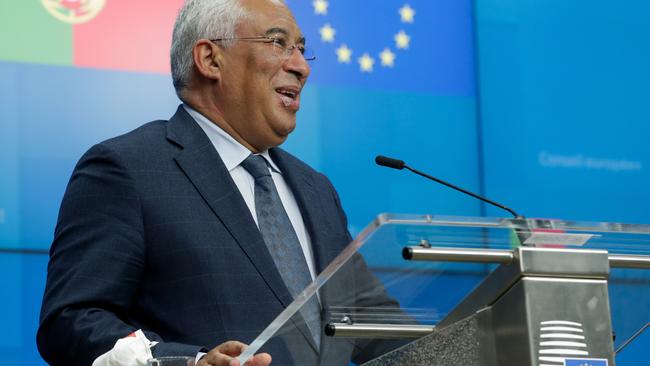Europe’s cultural tribes at war over member status

To make Europe work, he says, the countries that genuinely care about European values need to slough off the unbelievers. The remnant would be a smaller but purer group of countries ready to build the kind of “ever deeper union” of which EU founders such as Jean Monnet and Robert Schumann dreamed. As Costa puts it: “Basically, it is whether the European Union is a union of values, or whether, on the contrary, it is primarily an economic instrument to generate economic value.”
It is a noble-sounding idea, but it is not exactly correct. Under Costa’s proposed strategy, the EU might or might not become a “union of values”. But it would become a much more efficient economic instrument to transfer economic resources to Costa’s constituents.
Costa, whose thinking about Europe is said to be close to that of French President Emmanuel Macron, has two groups of countries in mind when he speaks of the backsliders who fail to embrace European values. One group, the “Illiberal East”, as we can call them, are countries such as Poland and Hungary that dissent from conventional EU orthodoxy on topics ranging from migration to gay rights — and whose governments have been widely criticised in Europe and beyond for undermining democracy through restrictive media laws and other stratagems.
The other basket of deplorables Costa wants to toss is perhaps more surprising: the so-called Frugal Four (The Netherlands, Denmark, Austria and Sweden), which want to hold the lid on EU spending and don’t like Brussels-funded bailouts. Costa tries to draw a parallel between the Frugal Four’s alleged disregard of the core European value of solidarity with the Illiberals’ disregard of democracy and the rule of law.
Cynics will note here that countries Costa wishes to reject have another feature in common: they stand between Portugal and money. The ex-Warsaw Pact countries in the east are the chief rivals for EU funds to the Club Med countries of the south, and the Frugal Four are the tightwads who want to keep Brussels spending low — and to attach all kinds of irritating conditionalities to any bailouts.
One can’t blame Costa for wrapping an ambition so practical in rhetoric so grand; a large part of political leadership involves the development of elevated political language for humdrum and sometimes even sordid goals. When you are a socialist, and you have — as Margaret Thatcher warned that you would — run out of other people’s money, words like “solidarity” and “values” come naturally to mind.
France, which has long supported the idea of a smaller, tighter European core, will be happy with this approach — a win for Costa, who needs Paris’s support if (as is rumoured) he nurses ambitions for a senior policymaking role in Brussels. But his speech is unlikely to have much impact where it really matters: Berlin.
Germany likes the EU as it is. The divisions between the Frugal Four, Club Med and the Illiberal East help give Berlin the deciding vote in European affairs — and German political, economic and security interests all point to keeping the EU membership as is. Germans can see the traps Costa and Macron are somewhat transparently constructing, and neither Angela Merkel nor any of her potential successors have the slightest intention of stepping into them.
Europe’s biggest headache isn’t Costa’s call for fundamental change. It isn’t the constant French scheming. It isn’t even the imbroglio over Polish and Hungarian resistance to the legislation needed to complete the EU-funded COVID bailout. It’s ultimately the belief of so many Europeans that their countries can indefinitely embrace a policy of “values” that somehow always seems to involve transfers of resources from productive to less productive actors in the economy.
Costa and his fellow Europeans aren’t wrong to care about social spending or the needs of the poor. Nor are they wrong to point out that doctrinaire versions of laissez-faire policies often fall short in the real world. Where they go seriously and grievously wrong is in forgetting that economic value is the value on which the others ultimately depend. A Europe that fails to excel economically cannot excel socially. The Frugal Four aren’t infallible when it comes to policy choices, but they aren’t betraying Europe when they talk about responsible budgeting and conditionality. They are trying to save it.
The Wall Street Journal



As European diplomats haggled over the threatened Polish and Hungarian vetoes that could block the COVID bailout plan so laboriously negotiated earlier in the year, Portugal’s Socialist Prime Minister Antonio Costa took the occasion to propose a plan to shrink and simplify the European Union.